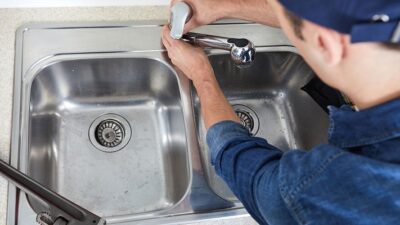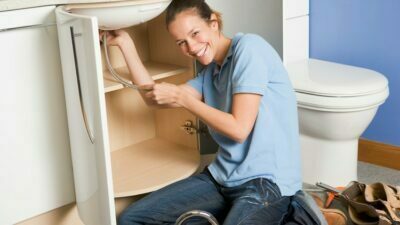There are particular difficulties in keeping medical offices clean throughout the summer. Higher foot traffic, increased use of air conditioning, and the potential spread of seasonal illnesses make it essential to maintain a spotless and sanitary environment. This guide explores effective strategies for commercial medical office cleaning during the summer, ensuring a safe and welcoming atmosphere for patients and staff alike. Leveraging professional office cleaning services MO can make a significant difference in maintaining these high standards.
Importance of Cleanliness in Medical Offices
Health and Safety: Keeping a medical office clean is essential to stopping the spread of illnesses and protecting patients’ and healthcare professionals’ health and safety.
Patient Satisfaction: A clean environment reassures patients about the quality of care they will receive. It contributes to a positive experience, encouraging repeat visits and positive word-of-mouth recommendations.
Regulatory Compliance: Medical offices must comply with stringent health regulations. Regular and thorough cleaning helps meet these requirements, avoiding potential fines and ensuring the facility’s reputation remains intact.
Daily Cleaning Tasks
Reception and Waiting Areas:
- Dust and disinfect surfaces such as reception desks, tables, and chairs.
- Clean and sanitize high-touch areas, including doorknobs, light switches, and electronic devices.
- Sweep and mop floors to remove dirt and debris.
- Empty trash bins and replace liners to prevent odor and contamination.
- Ensure that reading materials and toys in the waiting area are clean and organized.
Exam Rooms:
- Disinfect examination tables, countertops, and medical equipment after each patient.
- Clean and sanitize sinks, faucets, and other fixtures.
- Change and launder linens, such as bed covers and gowns, regularly.
- Sweep and mop floors with disinfectant solutions to eliminate germs.
Restrooms:
- Clean and disinfect toilets, sinks, and countertops.
- Replenish soap dispensers, paper towels, and toilet paper.
- Empty and sanitize trash bins.
- Sweep and mop floors to maintain hygiene and prevent slips and falls.
Weekly Cleaning Tasks
Deep Cleaning of Surfaces:
- Perform a detailed cleaning of all surfaces, including hard-to-reach areas.
- Use hospital-grade disinfectants to ensure thorough sanitation.
Carpet and Upholstery Cleaning:
- Vacuum carpets and clean any upholstered furniture to remove dust and allergens.
- Use professional-grade cleaners to eliminate stains and refresh fabrics.
Ventilation and Air Quality:
- To guarantee adequate ventilation and lower the possibility of airborne pollutants, clean HVAC systems, and air vents.
- For the best possible air quality, replace air filters on a regular basis.
Monthly Cleaning Tasks
Floor Maintenance:
- Conduct a deep cleaning of all floor surfaces, including tile, vinyl, and carpeted areas.
- Apply wax or polish to hard flooring to protect against wear and tear and maintain a professional appearance.
Wall and Ceiling Cleaning:
- Dust and wipe down walls and ceilings to remove accumulated dirt and cobwebs.
- Pay special attention to corners and high areas that are often overlooked.
Specialized Equipment Cleaning:
- Schedule deep cleaning for specialized medical equipment to ensure they are free from contaminants.
- Ensure all filters, drains, and water systems are thoroughly cleaned and maintained.
Seasonal Cleaning Tasks
Exterior Cleaning:
- Power wash building exteriors, sidewalks, and parking lots to remove grime and debris.
- Clean outdoor signage and windows for a pristine appearance.
Pest Control:
- Conduct a thorough inspection for pests and implement necessary control measures.
- Ensure that the facility is sealed properly to prevent infestations.
Tips for Effective Summer Cleaning
Use Proper Cleaning Supplies:
- Employ cleaning solutions and disinfectants that are effective against viruses and bacteria but safe for use in medical environments.
Train Cleaning Staff:
- Ensure that cleaning personnel are well-trained in proper cleaning techniques and the use of equipment.
- Regularly update training to incorporate new cleaning protocols and safety measures.
Schedule Regular Inspections:
- Perform routine inspections to ensure that all areas of the medical office are being cleaned to the highest standards.
- Address any issues or areas that require additional attention promptly.
Encourage Staff Participation:
- Provide sanitizing stations and encourage staff to maintain hygiene practices.
- Display signage to remind everyone of the importance of cleanliness and hygiene.
Choosing Professional Cleaning Services
Hiring professional cleaning services offers several benefits for medical offices:
- Expertise: Professionals have the knowledge and experience to clean medical offices effectively, using the best practices and equipment.
- Consistency: Regular professional cleaning ensures that high standards are maintained consistently.
- Time and Cost Efficiency: Outsourcing cleaning allows medical staff to focus on patient care while ensuring cost-effective cleaning solutions.
Conclusion
Maintaining a clean and hygienic medical office is essential, especially during the summer months when the challenges of higher foot traffic and increased use of air conditioning can affect cleanliness. By following a comprehensive cleaning checklist and utilizing professional office cleaning in NYC, medical offices can ensure their facilities are safe, inviting, and well-maintained. Regular cleaning tasks, combined with periodic deep cleaning and maintenance, create an optimal environment for healthcare, promoting a healthy and comfortable experience for both patients and staff.










Comments